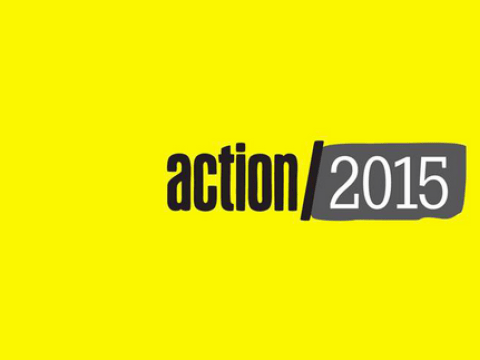In 2015: New goals, more action for the world's poor

The new Sustainable Development Goals (SDGs): Will they help us tackle the challenges our world faces in the coming fifteen years? How can we ensure that the goals work for everyone, even the most vulnerable and poorest?
To answer these questions, a diverse range of NGOs have banded together under the banner of action/2015. As a leading organisation under that banner, World Vision International wants, as a non-negotiable, to ensure citizens are involved in the post-2015 development agenda. Public opinion and public scrutiny of the SDGs play an important role in the new goals. Without citizen involvement, the risk is that the goals will be meaningless.
related content:
PHOTOS: 15 musts for fighting global poverty in the next 15 years
PHOTOS: 15 amazing achievements in fighting poverty
Until recently the disconnection between citizens and decision-makers on the new goals had been palpable. But through the efforts of civil society and coalitions like action/2015, we can connect citizens to the process that has so far been confined to New York and national capitals. We believe we need to engage simultaneously with a global public around a coherent global framework for positive change, and with local communities around practical challenges.
Action/2015 represents a new approach and has been developed in response to the perception of 2015 as a potential watershed year – when critical global decisions and directions will be formed.
Action/2015 represents a new approach and has been developed in response to the perception of 2015 as a potential watershed year – a window of time where some critical global decisions and directions will be formed. Combining some attributes of a campaign, and some aspects of a global social movement, it seeks to combine diversity with coherence, depth of analysis with achievability of outcomes. It aims to provide an over-arching framework, focused on critical issues like climate, gender, inequality and global health, which is enabling rather than prescriptive.
Action/2015 will not so much be a campaign in itself, but will amplify, energise, and encourage the communities, movements and organisations that are working for justice, an end to conflict and violence, and a sustainable future. The fact that it is not organised around a single specific policy objective may seem a limitation in some ways, but is actually an asset, in fact a necessity, if it is to fulfil its potential as a catalysing force that promotes attention to causes not symptoms, and to systemic change.
Openness and diversity is critical – it must allow for breadth of participation, and not merely be a northern-led movement focused solely on raising consciousness in the developed world. For large NGOs this is a particularly important challenge, one that relates to our own practices and processes, where we have every need to be inclusive, and no excuse for failing to be.
I believe most people on our planet recognise that positive change, addressing our biggest challenges, is a matter both of justice and of the best strategy to secure a sustainable future.
In trying to catalyse and sustain effective movements for change, we need to somehow recognise the legitimacy and primacy of the local, authentic experience, even though this can sometimes lead us towards problematizing situations and feeding pessimism. But this is best overcome by investing time and effort in a narrative that accurately describes and celebrates progress – creating the momentum and energy that leads to optimism and commitment.
My hope and belief is that action/2015 will make a dramatic contribution – creating a time in our history where the total will be more than the sum of the parts, where people will be conscious that their everyday actions as citizens are forming a new and better global reality. 2015 and the new sustainable development goals offer many opportunities for change – both for citizens and for decision-makers.